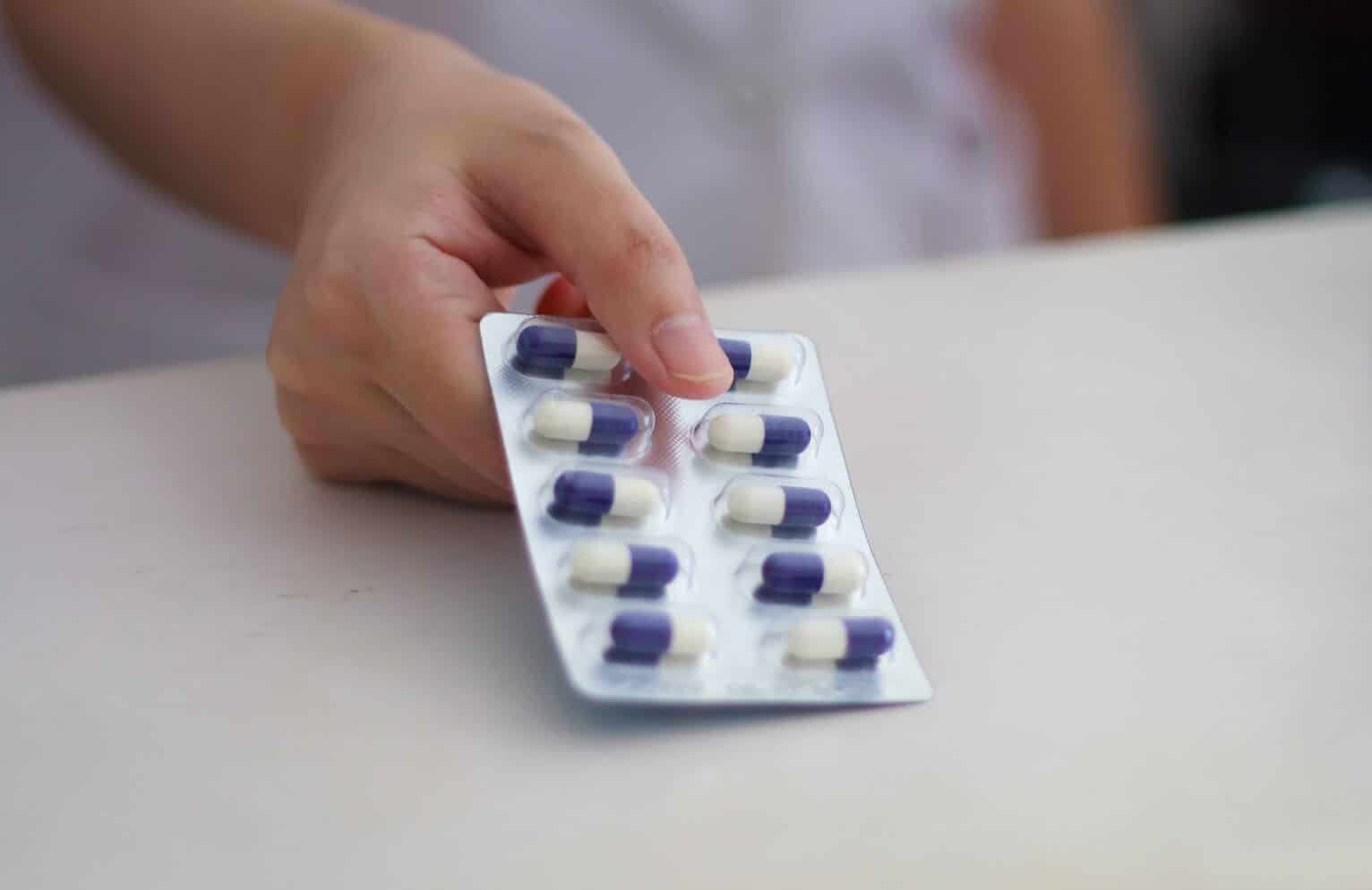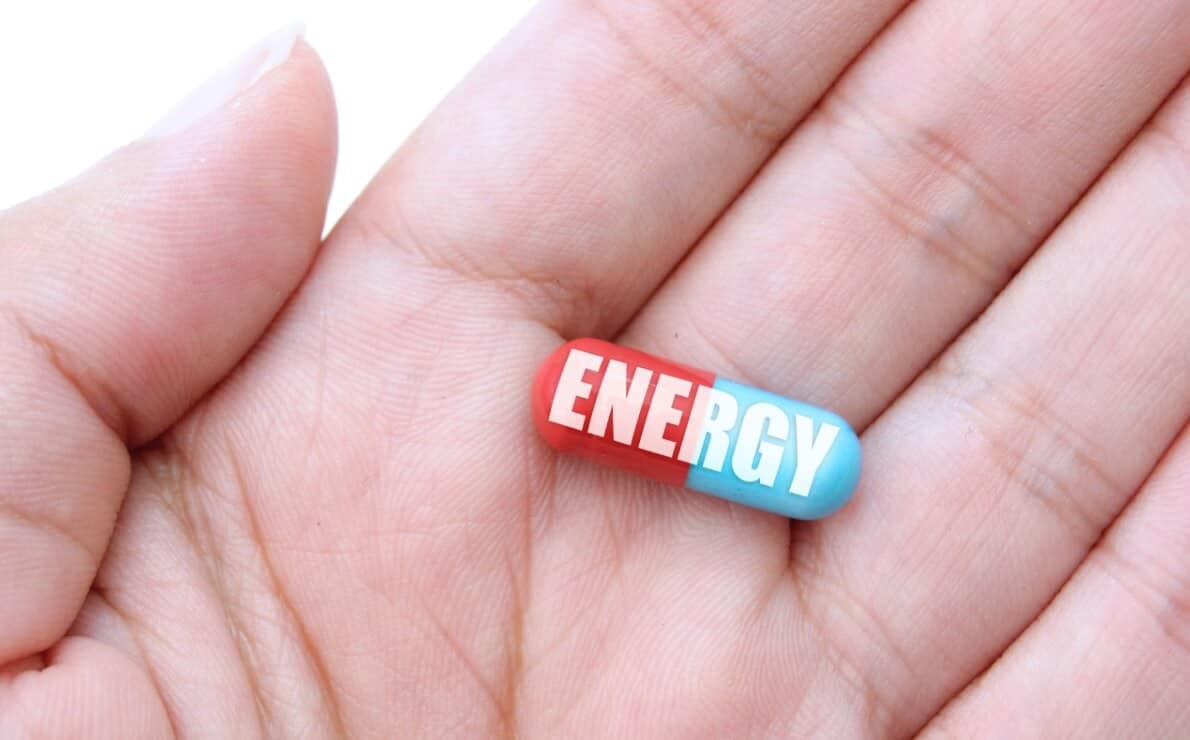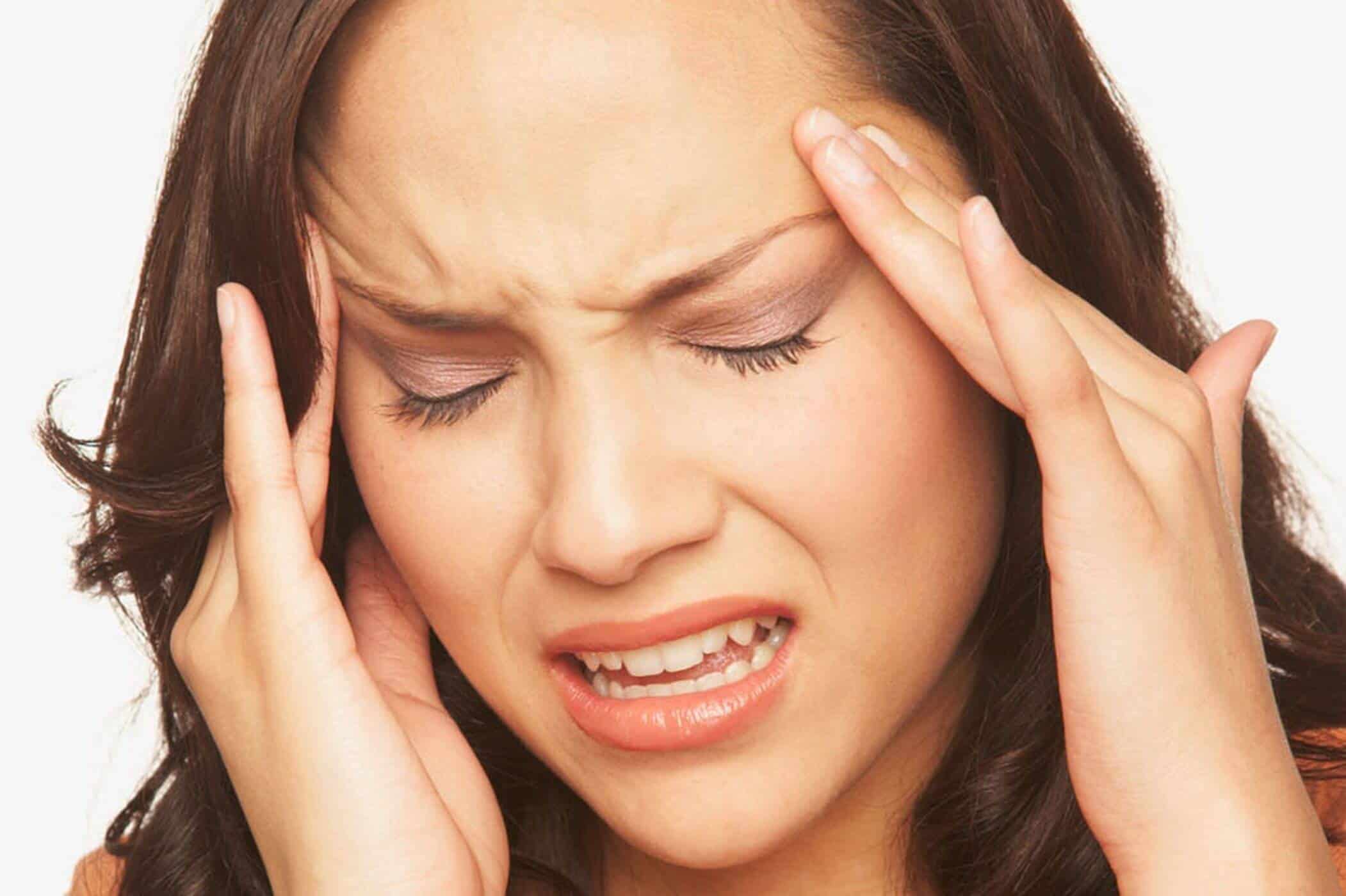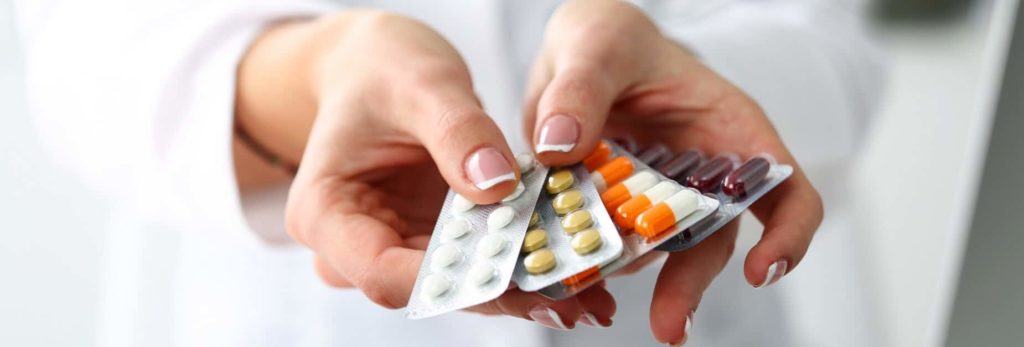Among the many dietary products on the market, you’ll find weight-loss stimulants.
Ever since weight-loss supplements hit the shelves, their effectiveness has come into question, according to Mayo Clinic. Research shows that some provide support for weight management, while others are nothing more than a placebo, as stated by the National Institutes of Health, Office of Dietary Supplements.
Use this guide to learn everything you need to know about weight-loss stimulants.
What are Stimulants?
Stimulants are medications or supplements that act on neurotransmitters in your brain. The increased neurotransmitters accelerate your autonomic nervous system (ANS) which results in increased awareness and energy, according to Livestrong. The effectiveness of weight-loss stimulants seems to boil down to the combination of medications used and the lifestyle choices you make.
What do stimulants do?
Stimulants make you more alert and heighten your attention-span and energy-level. Because they act on your ANS, it means they also increase your heart rate, and breathing.
According to the Psychology Department of Vanderbilt University, stimulants were developed for the treatment of numerous health conditions—including breathing problems. When addiction became a rising issue, the use of stimulants in medicine began to decrease.
How do stimulants work?
Stimulants operate in your brain where they increase your neurotransmitter dopamine. As the level of dopamine gradually increases in your brain, your ANS accelerates. The acceleration of your ANS results in the therapeutic effect of the stimulant.
Bottom line: Stimulants increase dopamine, a neurotransmitter in your brain, which increases your alertness, attention and energy levels.

Stimulants for Weight-Loss
The idea is that stimulants can be used to assist you with modest weight loss, but there are conflicting studies on the effectiveness of weight-loss stimulants, according to a study by the Oregon State University.
Also, Livestrong says that stimulants can suppress your appetite and rouse your metabolism—which increases fat-burning. Though this was shown in scientific research by Wellman and Sellars, other studies have shown that the effectiveness of weight-loss supplements is inconclusive, minimally significant, or worse yet: they are not effective.
Melinda Manore—who holds a doctorate in nutrition and is affiliated with the Oregon State University Nutrition Department, School of Biological and Population Health Sciences and the Hallie E. Ford Center for Healthy Children & Families—”reviewed the evidence surrounding hundreds of weight loss supplements…and said no research evidence exists that any single product results in significant weight loss.”
For now, the jury remains out on the effectiveness of weight loss stimulants, but there is a wide array of over-the-counter and prescription weight loss stimulants on the market.
Bottom line: The idea is that stimulants provide you with energy, boost your metabolism and increase satiety to help you achieve your weight-loss goals, but there are conflicting studies on the effectiveness of weight-loss stimulants.

Types of Weight-Loss Stimulants
There are two types of weight-loss stimulants: over-the-counter and prescription.
Over-the-Counter Weight-Loss Stimulants
There are little regulation and requirements to purchasing over-the-counter weight-loss stimulants. However, there are strict regulations when purchasing prescription stimulants for weight loss.
A lack-of-proof for the effectiveness or safety of the supplement will not stop the product from hitting the market. This leaves the research up to you, the consumer. You will need to find innovative methods to learn about the product before you make your purchase.
Luckily, the FDA will ban a supplement if it proves to be dangerous. That’s when you’ll start hearing about “recalls” for the product through the media.
Prescription Weight-Loss Stimulants
Now, prescription weight-loss stimulant medications are heavily regulated by the FDA and providers are cautious about prescribing them, as stated on University of Kentucky News.
You must have a body mass index (BMI) of 30 or higher to receive a prescription weight-loss stimulant. But, providers will also prescribe weight-loss stimulants to individuals who have a BMI of 27 or higher if you have additional weight-related conditions, according to WebMD.
Regardless of your BMI, before the provider hands you a script, they will ask you about your full medical history because there are side effects and health risks involved with taking weight-loss stimulants.
To be safe, be honest with your provider about any pre-existing conditions.
Notably, whether you use an over-the-counter or prescription weight-loss stimulant (should you choose to use a weight loss stimulant): you have your pharmacist. People tend to forget what a wealth of knowledge the pharmacist is!
Your pharmacist can compare your current medications against the weight-loss stimulant you are interested in and let you know about the risks or side effects you might face when combining the drugs.
Bottom line: The two types of weight-loss stimulants are over-the-counter and prescription. Over-the-counter and prescription weight-loss stimulants are not equally regulated or accessible. You can talk to your provider or pharmacist about either type of weight-loss stimulant.
Available Weight-Loss Stimulants
There is an array of over-the-counter and prescription weight-loss stimulant products available, including:
Over-the-Counter Herbal Stimulants
Guarana
This is commonly found in diet pills and it contains caffeine, among other stimulants. According to Livestrong, it has shown to be effective for weight loss, but it has dangerous side effects. You’ll find this in a lot of energy drinks.
Yerba mate
This is commonly consumed as a tea and contains caffeine and phytochemicals that help weight loss by suppressing your appetite, as stated by the National Institutes of Health, Office of Dietary Supplements.
Green tea
This tea leaf increases your metabolism and fat oxidation which aids your weight loss. Moreover, it contains caffeine.
Green coffee bean extract
This contains chlorogenic acid which has shown to inhibit the accumulation of fat and control glucose metabolism to aid weight loss.
Other Over-the-Counter Stimulants
Ephedrine
It is a stimulant that increases your body’s thermogenesis (you heat up) and metabolism which increases your calorie burn and supports weight loss.
Phenylpropanolamine
This can suppress appetite to aid weight loss.
Caffeine
All other stimulants are based on caffeine. According to Katherine Zeratsky, a nutritionist at the Mayo Clinic, it may increase your calorie burn and cause appetite suppression which may have a minor positive impact on weight loss.
Are Weight-Loss Stimulants Safe?
The Department of Pharmaceutics at the University of Arkansas for Medical Sciences provided that safety concerns are lessened when you consume a drug in the recommended, moderate dosage.
They also noted that people should not assume herbal or natural stimulants are safe. Moreover, there’s little research and regulation to dietary supplements.
Drug interactions are a cause for concern. There are increased safety risks when you combine a stimulant with other stimulants or other medications. Negative drug reactions and negative side effects can occur.
Additional Safety Concerns About Weight-Loss Stimulants
The NIH urges you to talk to your healthcare provider before taking stimulants. Following the recommendations of your healthcare provider will reduce associated safety concerns.
“The FDA and FTC warn consumers to beware of fraudulent claims about weight-loss dietary supplements,” said the NIH.
You can check-in for public notifications about and recalls on weight-loss products on the FDA website. They maintain a specific webpage for this purpose—it’s called “Tainted Weight Loss Products.”
The Mayo Clinic provides a safety warning for short-term weight loss drugs. A short-term drug is one that you will consume for 12 weeks or less. These stimulants are controlled substances that have possible severe side effects and an increased risk of abuse and addiction.
Bottom line: Talk to your doctor about safe and effective stimulants for weight loss.

Benefits of Weight-Loss Stimulants
There are benefits to using weight-loss stimulants. Moreover, it’s a best practice to accompany a weight-loss stimulant with diet and exercise.
Dr. Jill Jin, an internal medicine provider with the Northwestern Medical Group in Chicago, said “The benefit of these medications is that they help move weight loss along more quickly than diet and exercise alone, thus encouraging patients to stick to their lifestyle changes.”
By combining a healthy lifestyle and the support of medical professionals, with the use of stimulants, you will be more likely to lose weight and maintain your weight loss.
A healthy lifestyle can also improve your mood and increase your energy level—so it is the best practice to follow.
Do Weight-Loss Stimulants Increase Energy?
MedlinePlus says yes—weight-loss stimulants will boost your energy level.
Caffeine stimulates your central nervous system (CNS). Moreover, a stimulated Central Nervous System increases your alertness, attention and energy.
Ephedrine is an over-the-counter weight loss stimulant. It stimulates the CNS which increases certain chemicals, like dopamine. The increase in chemicals results in short-term appetite loss and increase in energy, according to University of Colorado Hospital.
A study at Vanderbilt University found that individuals who were taking ephedrine, a stimulant, experienced a moderate increase in energy expenditure of 3.6% compared to those who were not.
Bottom line: Doctors provide that the right way to use weight loss stimulants is in combination with a healthy lifestyle. Stimulants accelerate your CNS to increase your energy level. A study with ephedrine showed it to be true that weight-loss stimulants do give you energy.

Do Weight-Loss Stimulants Really Work?
The effectiveness of weight-loss stimulants is dependent on the product. Moreover, the effectiveness also depends on lifestyle choices.
Scientific research shows that some weight loss stimulants have a positive effect on weight loss. Other studies show there is no evidence supporting the effectiveness of stimulants for weight loss. And some studies have proven that weight-loss stimulants are effective only when coupled with other stimulants or diet and exercise.
The combination of ephedrine and caffeine for weight loss is effective. However, there are risks connected to this combination.
The Department of Human Nutrition, Royal Veterinary and Agricultural University in Denmark has hosted multiple studies on the combination. Various positive results include statistically significant weight loss, preservation of lean body mass and the reduction body fat.
Be aware when combining multiple stimulants and other medications.
Bottom line: Scientific research is conflicting on the effectiveness of weight-loss stimulants. Some studies have shown that stimulants have a positive effect on weight-loss.
Weight-Loss Stimulants Side Effects
Possible negative side effects associated with taking stimulants include:
- Aggression
- Headache
- Diarrhea
Bottom line: Negative side effects are more likely when you consume stimulants in higher dosages than recommended.

Weight-Loss Stimulants and Substance Abuse
The National Institute on Drug Abuse stated, stimulants cause alertness, increase attention and suppress appetite. People use and abuse stimulants for weight loss.
Without stimulants, when the neurotransmitter dopamine increases in your brain, it does so gradually. That’s why when you take stimulant supplements it’s important to start with a small amount of stimulant and gradually increase it—and that’s how providers prescribe it.
If you start with a higher dosage and rapidly increase, you disrupt the normal functioning of your brain cells. However, you’ll create euphoria and increase your risk of substance abuse and addiction.
To reduce the risk of substance abuse, be sure to take the stimulant in the quantity and manner prescribed by your provider, as recommended by the pharmacist, or as stated on the label.
Bottom line: There is a risk for abuse and addiction associated with consuming stimulant medications. By consuming stimulants in a quantity and manner higher than recommended, your risk for addiction increases.
What Users Are Saying
“It actually works!!! I was in search of a cheaper replacement for NRG. To my surprise, the work even better in my opinion. Suppresses my appetite, energy and no crashing.”
“Ephedrine feels dirty and much more jittery than amphetamines and synephryne I totally wouldnt recommend in high doses as the side effects are extremely nasty. Try to be safe. Stick with what ya kno imo”
“I love this extended release caffeine. I get no jitters, no immediate high, which also means no crashes, just a nice steady release of caffeine which gives me hours of being alert and feeling refreshed. Love the clean ingredients and have also bought the pre-work out in the Genius brand and love it just as much.”
The Bottom Line About Weight-loss Stimulants
Some studies show weight-loss stimulants to be effective, while others do not. The specific stimulant, as well as combinations with other stimulants and lifestyle choices, seem to dictate the effectiveness of weight-loss stimulants.
Various studies have shown that weight-loss stimulants have positive effects which help with statistically significant weight loss, preservation of lean body mass and reduction of body fat.
Your health situation, including your BMI and additional medical conditions, will affect whether your provider thinks weight-loss stimulants are right for you.
Weight-loss stimulants come with concerns. Regardless of whether you choose over-the-counter or prescription weight-loss stimulants, you should consult your healthcare provider using weight-loss stimulants.
Stimulants – For Weight Loss and the Effects on the Body Questions & Answers
Stimulants like phentermine, phendimetrazine, and diethylpropion are commonly prescribed for weight loss. These stimulants work by decreasing appetite and increasing energy levels, thus helping to promote weight loss by reducing caloric intake. Additionally, these stimulants can also increase metabolism, which leads to increased calorie burning for further weight loss benefits.
Article Sources
- https://www.mayoclinic.org/healthy-lifestyle/weight-loss/in-depth/weight-loss/art-20046409
- https://ods.od.nih.gov/factsheets/WeightLoss-HealthProfessional/#en6
- https://www.livestrong.com/article/482854-over-the-counter-stimulants-for-weight-loss/
- http://healthpsych.psy.vanderbilt.edu/HealthPsych/stimulants.htm
- https://today.oregonstate.edu/archives/2012/mar/study-most-weight-loss-supplements-are-not-effective
- https://www.livestrong.com/article/482854-over-the-counter-stimulants-for-weight-loss/
- http://healthpsych.psy.vanderbilt.edu/HealthPsych/stimulants.htm
- https://health.oregonstate.edu/people/melinda-manore
- https://today.oregonstate.edu/archives/2012/mar/study-most-weight-loss-supplements-are-not-effective
- https://uknow.uky.edu/uk-healthcare/supplements-cant-promise-weight-loss
- https://www.webmd.com/diet/obesity/healthy-weight#1
- https://www.webmd.com/diet/obesity/weight-loss-prescription-weight-loss-medicine#1
- https://www.livestrong.com/article/355722-negative-side-effects-of-caffeine-ephedrine/
- https://ods.od.nih.gov/factsheets/WeightLoss-HealthProfessional/#caffeine
- https://www.mayoclinic.org/healthy-lifestyle/weight-loss/expert-answers/caffeine/faq-20058459
- https://www.fda.gov/Drugs/ResourcesForYou/Consumers/BuyingUsingMedicineSafely/MedicationHealthFraud/ucm234592.htm
- https://www.mayoclinic.org/healthy-lifestyle/weight-loss/in-depth/weight-loss-drugs/art-20044832?pg=2
- https://www.livescience.com/51896-weight-loss-drugs-pros-cons.html
- https://medlineplus.gov/caffeine.html
- http://www.ucdenver.edu/academics/colleges/medicine/sportsmed/cusm_patient_resources/Documents/Diet%20Pills.pdf
- http://healthpsych.psy.vanderbilt.edu/healthpsych/ephedrine_wtloss.htm
- http://healthpsych.psy.vanderbilt.edu/healthpsych/ephedrine_wtloss.htm
- https://www.drugabuse.gov/publications/drugfacts/prescription-stimulants
- https://www.amazon.com/gp/customer-reviews/R1KIP6RRHDCCYI/
- https://www.reddit.com/r/Stims/comments/jc1jj2/ephedrine_vs_synephyrine_vs_amphetamine/g8ytmsu/
- https://www.amazon.com/gp/customer-reviews/R1LHIP20M7H79G/
Partner with Us!
Looking to promote your weight-loss products or services?
Our platform reaches a dedicated audience actively seeking the best solutions. Contact us to explore advertising opportunities and grow your brand with us.
Get in Touch
